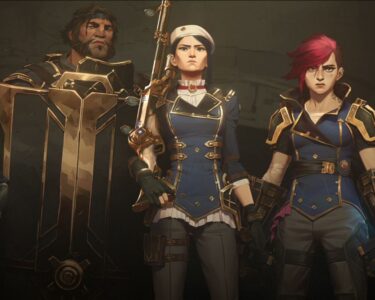Maya Ajmera, President & CEO of Society for Science and Executive Publisher of Science News, chatted with Erika Ebbel Angle, CEO and cofounder of Ixcela, a biotech company improving health outcomes through the treatment of gut microbiomes. Angle also founded the nonprofit Science from Scientists, which brings scientists into classrooms to deliver lab-based lessons. Angle competed in the 1999 Science Talent Search (STS) and the 1997 International Science and Engineering Fair (ISEF), both programs of Society for Science.
Do you have any favorite memories from STS and ISEF?
My favorite was ISEF, which took place in Kentucky. The energy of the event, with students from all around the world, all extremely excited about science and their projects, was incredibly unique and awesome. When you think of science fair, you might think you’ll meet super science dorks, but I met well-rounded, talented people with multiple interests. I went to a small private school, and ISEF opened my mind to the world.
I also had some incredible experiences with STS, bonding with my group of finalists and being interviewed by high-profile media. It was wonderful to be celebrated for my achievements and hard work. During the identity development of a child, knowing that they’re celebrated helps to create a sense of confidence and feeling that someone cares.
What led you to pursue a career in science?
When I was in elementary school, I had to do a science fair project, and of course, it’s a mad scramble to decide what to do. I decided I wanted to see whether cells commit suicide when they were infected by viruses. I was 11 and started by calling local labs looking for an internship. As you can imagine, it didn’t go very well. But one lab actually called back, and the director invited me to come on in. And so I did. I went back to his lab over and over again to talk to him. Eventually, he let me set up an experiment. I came back the next year, and the work I did evolved into my ISEF and STS projects. He became a mentor for the next 10 years and beyond. That experience led me down this path.
You were Miss Massachusetts 2004, which some might consider unusual in the world of science. How did you get involved in pageants?
When I was a student at MIT, my friends and I found ourselves watching the Miss America pageant one night, and they turned to me and said, “You should do this. You are always complaining that there is no place to dress up, and you have a talent — the piano.” I said absolutely not. So they signed me up for it.
The way it works is you compete in your local pageant, which qualifies for the state pageant. If you win the state pageant, you compete in the Miss America pageant. When I arrived at the local pageant, I didn’t know what I was doing, but the judges were very kind and helped me through it. I didn’t win.
Initially, I thought I was done. But then I thought, “Doing this is going to help me become a more well-rounded individual.” So I signed up for another local pageant, and then another. Eventually, I won a local pageant that qualified me for the state. I went through the process two more times, learning along the way, and in year three, I was named Miss Massachusetts and went to the Miss America pageant.

What led to your work at Ixcela?
After I completed my bachelor’s degree at MIT and was touring the state as Miss Massachusetts, I visited a Veterans Affairs hospital. The head of research introduced me to Wayne Matson, who eventually cofounded Ixcela with me. We were both interested in solving real-world problems that will help people live better lives, which is one of the things that led to my interest in working in his lab. Matson and I worked together in his lab while he was connected to Boston University’s medical school, which is where I received my Ph.D.
Together, we decided to design a consumer product that would look at certain biomarkers in blood that are related to the gut microbiome that could be intervened upon to help people solve many of their serious health issues, from chronic gastrointestinal issues to anxiety.
Recently, we have been exploring oncology. We’re running a series of pilots with cancer hospitals to explore whether patients on chemotherapy and immunotherapy may benefit from Ixcela’s gut microbiome programs. When patients are on these therapies, typically the first thing that gets “mashed up” is their gut microbiome. Through pilot programs, we’re able to reduce some of the horrible side effects that patients are dealing with and give hospitals an option for improving patient experience while lowering costs.
Tell us about Science from Scientists.
Science from Scientists is in 105 schools across California, Massachusetts and Minnesota. There are about 13,000 kids in the program, which focuses on grades 3 through 8. We send real scientists into the classroom every other week for the entire year, where they can answer a broad set of questions from the amazing students, serve as role models and demystify what it means to be a scientist. We seek to get students excited about and interested in STEM, because if they are excited and interested, they will be more likely to pursue a STEM career. And it works! Can you imagine how amazing it is — and it happens frequently — when students approach our scientists after class and ask for their autographs simply because they are scientists?
Science communication plays a vital role across many of your ventures. How do you approach communicating complex scientific concepts or the importance of an organization’s mission to the general public?
I have noticed that many scientists aren’t very good at communicating because there is often an assumption that everybody knows everything. If you are using terms that only you know, for example, your audience is not going to identify with the problem or understand why it’s important. I don’t make any assumptions and try to explain every term that is going to be discussed. Just because I live it every day doesn’t mean my audience does. Working with elementary and middle school kids really forces me to think carefully about what I’m saying and how I am saying it.
What books are you reading now, and what books inspired you when you were young?
My favorite books as a kid were Richard Preston’s The Hot Zone and Michael Crichton’s Jurassic Park. I just started reading Patrick Stewart’s memoir, Making It So. I’m a big Star Trek fan, and Patrick Stewart is remarkable. Prior to that, I was reading some adventure books, including Voyage of Commitment by Raymond F. Triplett and Seven Years in Tibet by Heinrich Harrer.
There are many challenges facing the world today. What’s keeping you up at night?
I think what’s challenging today is the population’s lack of responsibility and accountability to each other and the world around us. I believe we owe it to the world, society, our families and our friends to pay it forward and try to make the world a better place. There is sort of this sense that people are only motivated by money or profit. It’s disheartening. I think there is room to take a stand and make the world a better place.





